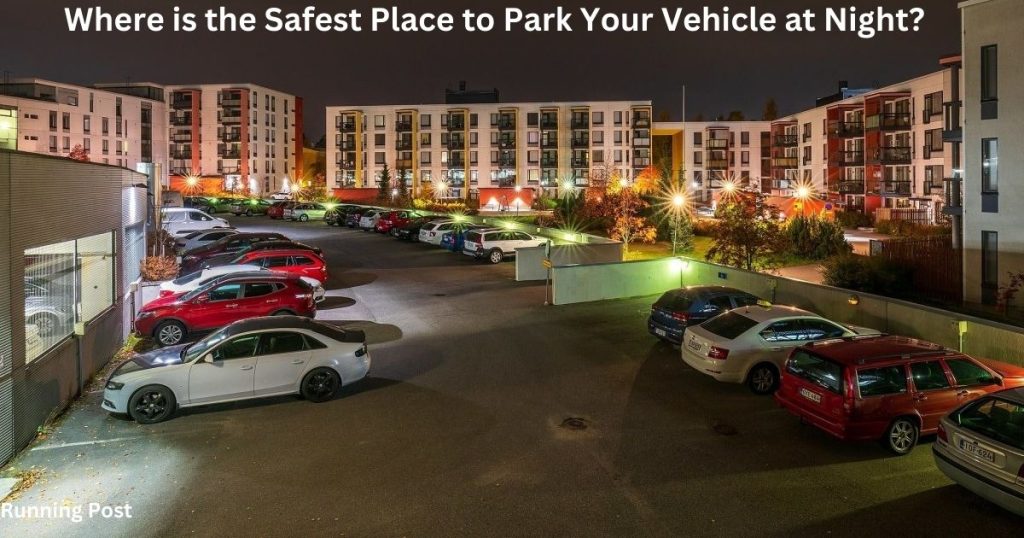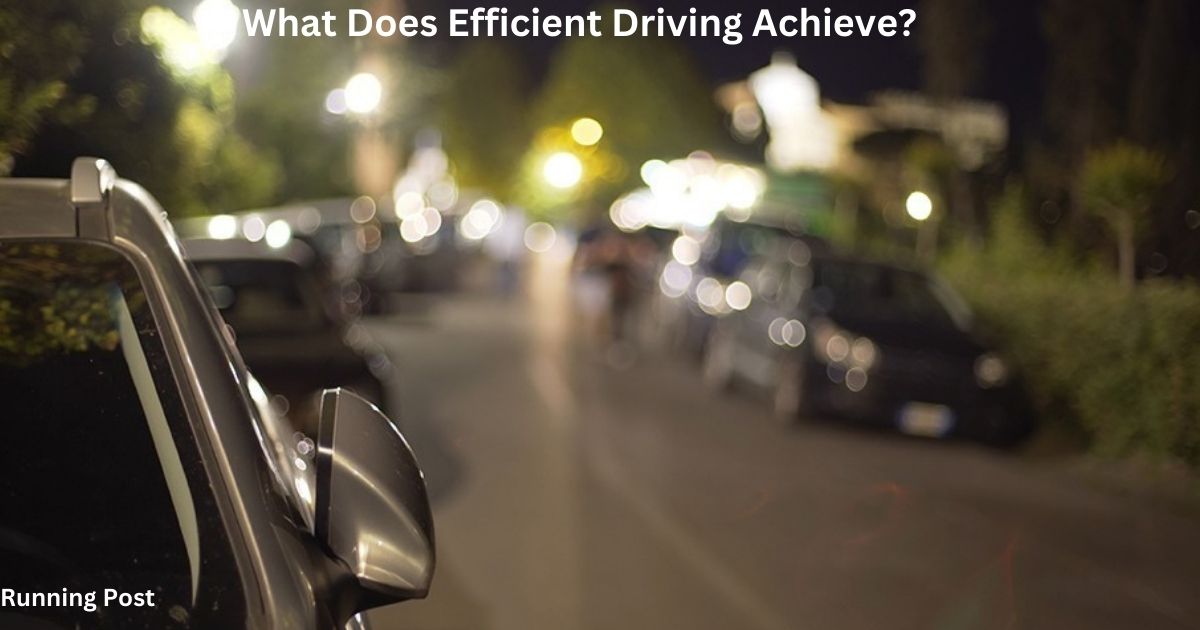| A: In a well-lit area | B: In a Dark Alley or Isolated Area | C: Under a Large Tree or Behind a Building | D: On a red route |
Where Should You Park Your Vehicle at Night?
Parking your vehicle at night requires careful consideration to ensure the safety of both your car and its occupants. Unlike daytime parking, nighttime parking presents unique challenges, such as reduced visibility, increased risks of theft, and potential damage. The ideal parking spot can significantly reduce these risks, providing peace of mind and protection for your vehicle. The primary goal when selecting a parking spot at night should be to maximize security and minimize potential hazards.
- Reduced Visibility: Nighttime reduces visibility for both drivers and pedestrians, making it harder to see potential threats or obstacles.
- Increased Risks of Theft: Dark or poorly lit areas are more attractive to thieves who are less likely to be seen or caught.
- Potential Damage: Parking in high-traffic areas or places prone to natural elements (like under trees) can lead to accidents or damage from falling debris.
Importance of Choosing the Right Parking Spot at Night
Parking at night isn’t just a matter of convenience; it’s a crucial aspect of vehicle safety. The right parking spot can mean the difference between a peaceful night and dealing with vandalism, theft, or even a break-in. A good parking spot is one that is well-lit, has plenty of visibility, and ideally is in a populated area. Thieves and vandals are less likely to target vehicles in these areas because they risk being seen and caught.
- Deter Criminal Activity: Well-lit and populated areas discourage thieves and vandals.
- Reduce Accident Risk: Avoids high-traffic or risky areas like sharp turns and intersections.
- Safety for Driver and Passengers: Ensures safe passage to and from the vehicle, especially in busy or monitored areas.
Best Places to Park Your Vehicle at Night
The ideal parking spot at night should offer maximum security and convenience. Different locations offer varying levels of safety, and choosing the right one depends on several factors, including location, availability, and personal comfort. Generally, the best places to park your vehicle at night are residential areas, public parking lots, and commercial garages.
- Residential Parking:
- Familiar environment with regular foot traffic.
- Lower traffic levels reduce accident risks.
- Public Parking Lots:
- Usually well-lit with surveillance cameras.
- Often patrolled by security personnel.
- Commercial Garages:
- Enclosed spaces with controlled access points.
- Equipped with security cameras and sometimes guards.
How to Park Safely at Night
Parking safely at night involves several strategies beyond just choosing a good location. The right habits can prevent theft, accidents, and other potential hazards. Key safety tips include parking in well-lit areas, avoiding isolated spots, and opting for locations with surveillance cameras.
Choosing Well-Lit Areas for Parking
Parking in a well-lit area is one of the simplest yet most effective ways to enhance safety. Adequate lighting deters criminals, helps you see your surroundings clearly, and makes it easier to locate your vehicle.
- Increased Visibility: Easier to see and be seen, reducing theft risks.
- Better Surveillance: Well-lit areas are often covered by security cameras.
- Safety for Drivers: Better lighting reduces trip-and-fall accidents.
Avoiding Isolated and Dark Spots
Isolated and dark spots are more attractive to criminals because they offer concealment. Avoid parking in places where there are few people or minimal lighting.
- Less Concealment for Criminals: Higher chances of being seen and caught.
- Reduces Risk of Assault: Fewer opportunities for muggers or attackers.
- Better for Vehicle Safety: Less likely to be targeted by vandals.
The Benefits of Parking Near Surveillance Cameras
Parking near surveillance cameras provides an added layer of security. Criminals are less likely to target vehicles that are monitored by cameras.
- Deterrent to Criminals: High chances of being caught on camera.
- Provides Evidence: Useful for investigations if a crime occurs.
- Increased Safety for Passengers: Reduces risk of personal crimes.
You Also Like It:
What will happen if your car’s wheels are unbalanced?
What’s the purpose of a catalytic converter?
On a motorway, where would you see green reflective studs?
Additional Security Measures for Your Vehicle
Beyond choosing the right parking spot, additional security measures can help protect your vehicle at night. These include using steering wheel locks, installing alarms, and adding GPS trackers.
Using Steering Wheel Locks and Alarms
Steering wheel locks and alarms are effective deterrents against theft. They make it more difficult for criminals to steal your car and attract attention if someone tries.
- Visible Deterrent: Criminals are less likely to target cars with visible security devices.
- Alarm Alerts: Alarms draw attention to the vehicle, deterring theft.
- Increased Difficulty for Thieves: Makes it harder to drive away with the vehicle.
Installing a GPS Tracker
A GPS tracker can help locate your vehicle if it is stolen. It provides real-time tracking and increases the chances of recovery.
- Real-Time Location Tracking: Helps authorities locate the stolen vehicle.
- Quick Recovery: Increases the chances of getting the vehicle back quickly.
Where is the Safest Place to Park Your Vehicle at Night?

Parking Near High-Foot Traffic Areas
Parking in areas with high foot traffic reduces the likelihood of criminal activity. These areas are usually well-lit and monitored, making them safer.
- Constant Activity: Deters criminals due to the constant presence of people.
- Better Lighting: Often have good lighting for pedestrian safety.
- Monitored Environments: Higher chances of security presence or cameras.
Benefits of Parking in Secured Residential Zones
Secured residential zones often have neighborhood watch programs or private security, reducing the risk of theft or vandalism.
- Community Vigilance: Residents often look out for each other’s property.
- Private Security: Some areas have hired security patrols.
- Lower Crime Rates: Generally safer than commercial or isolated areas.
Practical Tips for Choosing the Best Parking Spot
Choosing the best parking spot at night requires practical considerations such as assessing the environment and understanding how timing and location impact safety.
Assessing the Environment: What to Look Out For
When choosing a parking spot, assess the surroundings for potential risks. Look for lighting, visibility, and proximity to your destination.
- Check for Lighting: Ensure the area is well-lit.
- Look for Security Cameras: Areas with cameras are safer.
- Avoid Overhanging Branches or Low Visibility Areas: Reduces risk of damage.
Timing and Location: How They Impact Parking Safety
The time and location of parking can greatly affect safety. Parking during peak hours in busy areas can be safer than late at night in isolated spots.
- Peak Hours Provide More Safety: More people around reduces risks.
- Avoid Isolated Areas Late at Night: Less visibility and fewer people.
- Consider Location-Specific Risks: Some areas are riskier than others at certain times.
Common Mistakes to Avoid When Parking at Night
Parking at night requires caution, and there are several common mistakes to avoid to ensure vehicle safety and security.
Parking in Dark or Isolated Areas
Dark and isolated areas are attractive to criminals as they provide cover and reduce the likelihood of witnesses.
- Higher Risk of Theft: Less visibility means higher theft risks.
- Increased Vulnerability: Drivers and passengers are more vulnerable.
- Risk of Vehicle Damage: Less likely to be noticed if damaged.
Ignoring Local Parking Regulations and Signs
Ignoring parking regulations can result in fines, towing, or even leaving your vehicle in a dangerous location.
- Risk of Fines and Towing: Failing to follow regulations can be costly.
- Safety Risks: Ignoring signs may place your vehicle in unsafe areas.
- Increased Vulnerability to Crime: Parking illegally may mean fewer people around.
Conclusion
In conclusion, parking your vehicle safely at night involves a combination of choosing the right spot, taking additional security measures, and being aware of your surroundings. By following these tips, you can greatly reduce the risks associated with nighttime parking.
Recap of Key Points on Safe Nighttime Parking
To park safely at night, choose well-lit areas, avoid isolated spots, and consider additional security measures such as alarms and GPS trackers.
- Key Safety Tips: Well-lit, visible, and secure areas are best.
- Additional Security Measures: Use alarms, locks, and trackers for added protection.
- Importance of Awareness: Stay alert and assess parking environments carefully.
Final Thoughts on Choosing the Best Parking Spot for Your Vehicle at Night
Ultimately, the best parking spot is one that prioritizes safety and minimizes risks. By being mindful of where you park and how you secure your vehicle, you can protect your car and its contents effectively.
- Prioritize Safety: Choose spots that offer maximum security.
- Be Proactive: Take steps to secure your vehicle with added measures.
- Stay Informed: Know the best practices and common pitfalls to avoid.
FAQs: Where Should You Park Your Vehicle at Night
1. Why is it important to choose the right parking spot at night?
Choosing the right parking spot at night is crucial for several reasons:
- Safety: Reduces the risk of theft, vandalism, and accidents.
- Visibility: Well-lit areas help deter criminals and provide better visibility for pedestrians and drivers.
- Convenience: Proximity to your destination and security features like surveillance cameras add layers of safety.
2. What are the safest places to park a vehicle at night?
The safest places to park a vehicle at night include:
- Well-lit residential areas: Familiar surroundings with regular foot traffic and community vigilance.
- Public parking lots: Locations that are well-lit and have surveillance cameras and security patrols.
- Commercial garages: Offer controlled access, security cameras, and sometimes, on-site security personnel.
3. What are the risks of parking in dark or isolated areas at night?
Parking in dark or isolated areas can increase the risk of:
- Theft and Vandalism: Less visibility and fewer people around make it easier for criminals to operate.
- Personal Safety Hazards: Isolated areas can be dangerous for drivers and passengers, increasing the risk of assault or robbery.
- Vehicle Damage: Higher chances of accidental damage due to poor lighting or lack of visibility.
4. How can I make my vehicle more secure when parked at night?
To enhance the security of your vehicle when parked at night, consider the following measures:
- Use steering wheel locks and alarms: These visible deterrents discourage thieves.
- Install a GPS tracker: Helps in locating the vehicle if it gets stolen.
- Park near surveillance cameras: Adds an extra layer of security and evidence if needed.
You Also Like It:

